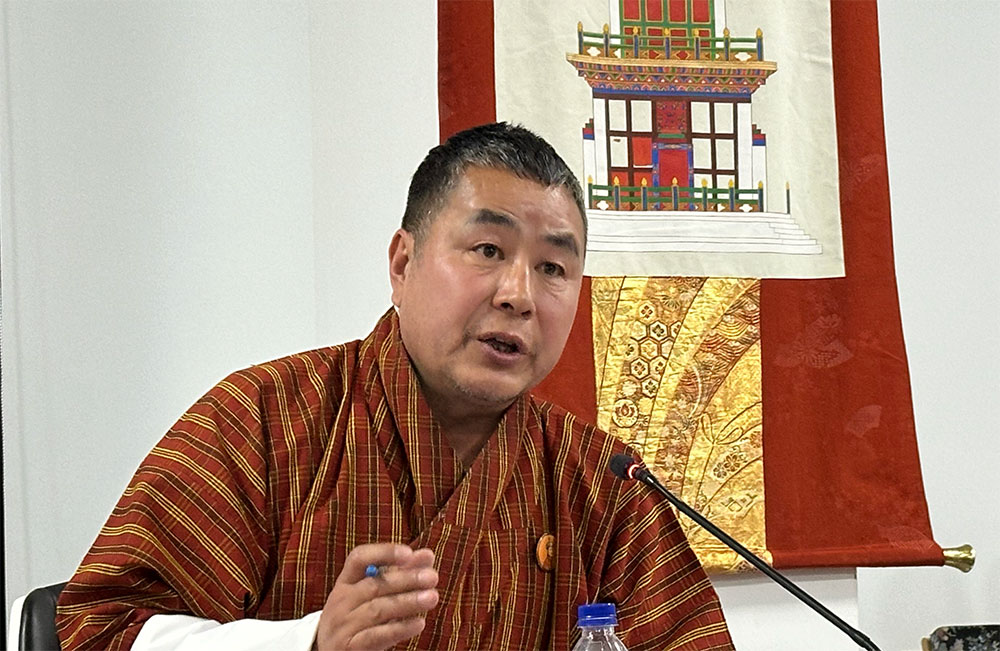Jigmi Wangdi
The attrition rates among healthcare professionals in Bhutan have reached concerning levels, Health Minister Tandin Wangchuk said at the second Meet the Press session.
Currently, the attrition rate stands at nine percent for doctors, seven percent for dental surgeons, and a staggering 20 percent for nurses.
The attrition rate for medical technicians, pharmacists, and other health workers and assistants is also at nine percent, based on data from 2023, which is likely to increase if the current year’s data is considered.
Lyonpo said that health workers continue to leave the country, posing significant challenges for the healthcare system.
Research conducted by the ministry identified several reasons for this trend.
Among them, inadequate benefits and allowances, limited career advancement opportunities, and better prospects in other countries were cited as major factors. Desire for better education for their children abroad and the allure of higher salaries and benefits overseas were also noted.
To address this issue, the National Medical Service (NMS) now conducts exit meetings with departing health workers to understand their reasons for leaving and attempt to resolve any issues they may have.
Efforts have also been made to improve working conditions, including implementing overtime pay for extended shifts and designing a clearer career pathway for health workers.
To mitigate the shortage of nurses, the ministry has proposed hiring 100 foreign nurses for the Jigme Dorji Wangchuck National Referral Hospital (JDWNRH).
However, Lyonpo emphasised that this measure is not a permanent solution to the attrition problem, expressing concerns about potential lapses in service quality due to the shortage of personnel.
Lyonpo stressed the importance of investing in medical studies and specialised training to address the long-term needs of the healthcare sector.


